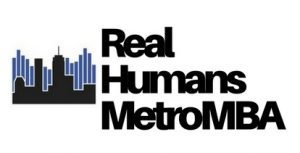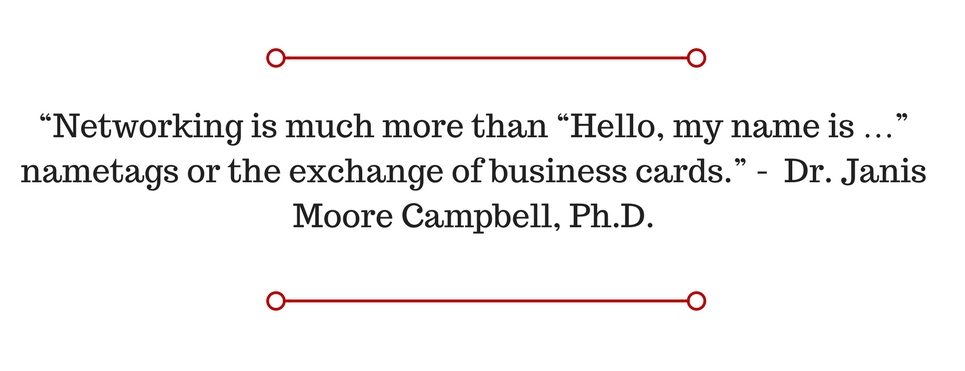Columbia Explores Power In News, and More – New York News

Let’s explore some of the most interesting stories that have emerged from New York City business schools this week.
Which News Outlets Have the Most Power? – Columbia Newsroom
Columbia Business School recently published research surveyed from 18 different countries, which uncovers that “television news is by far the most dominant and influential news source and the number of news sources that people rely upon and trust has a direct correlation with their income levels.”
CBS professor of business Andrea Prat explains, “Countries around the world are experiencing information inequality, with a distinct subset of the population depending on just one or two sources for news. In turn, this makes a certain set of large news organizations particularly powerful.”
The research points out several different, important conclusions:
- “Television-based organizations are the most powerful commercial news organizations.“
- “News sources that cater to information-poor audiences have greater ‘media power.’”
- “News consumption appears to be highly unequal.”
- “There is no evidence that public service broadcasting reduces information inequality.”
You can read more from the report here.
Toys ‘R’ Us is Just the Latest Nostalgic Retailer to Die – CNN Money
“Another one bites the dust,” writes CNN Money journalist Danielle Wiener-Bronner, remarking the full-scale closure of the once-iconic toy distribution empire Toys ‘R’ Us. Wiener-Bronner notes that the closure comes around six month after the chain filed for bankruptcy in fall of 2017, struggling for years to compete with other distribution chains like Wal-Mart and Amazon.

A photo of the grand opening of the Toys ‘R’ Us store in Manhattan. The 70-year-old former retail giant will soon be liquidating all of its U.S. and UK locations. Photo via AP/Richard Drew
Tulin Erdem, chair of NYU Stern‘s Marketing Department, spoke with Wiener-Bronner about the news, noting that while nostalgia can be very powerful when it comes to marketing, it just isn’t enough sometimes.
“You can have a comeback with [nostalgia], but you can’t sustain it,” she said.
While Toys ‘R’ Us stores will be effectively shutting down in the U.S. and UK, and upwards of 30,000 employers will lose their positions, the closure will never erase the sheer joy of driving a 2-seater child rider car in a department store. You can read the rest of the CNN Money report here.
Zarb Introduces New Co-Op MBA Program – Hofstra University Zarb School of Business
The Hofstra University Zarb School of Business recently announced a completely new full-time two-year Co-Op MBA, which includes a six-month paid co-op experience opportunity at a leading regionally based corporation.
“Hofstra University’s Co-Op MBA program provides students with an integrated educational and professional work experience in their field of study, allowing them to expand their experience and responsibility,” the school noted in a recent press release. “With New York City’s business community only 25 miles away, you’ll also have access to many non-classroom learning experiences.”
The program requires the completion of 38 to 45 credits, with classes available full-time, both day and night. The co-hort size will be between 25 and 30 students, offering 12 separate concentrations, including: accounting, business analytics, finance, and more.
Click here to learn more about the school’s newest program.
How Quickly Can You Earn an MBA in New York City?

The time of the two-year MBA is coming to an end. Now, many top schools offer accelerated MBA programs that can be completed in as little as 12 months—with one school offering a nine-month MBA program designed just for business school graduates. So where you can find the fastest MBA degrees in NYC?
For most of these one-year NYC business school programs, the MBA curriculum and experience is similar to that of the traditional two-year MBA but condensed into a more intense 12-month format. These are the ideal programs for business professionals who do not have the time to take off two years of work but want the full MBA experience. Continue reading…
Real Humans of the NYU Stern MBA Class of 2019

Clear Admit recently profiled many of the standout students from the NYU Stern MBA Class of 2019, which you can read below.
New York University’s Stern School of Business got the party started this summer as the first leading business school to share a profile for its incoming Class of 2019. That profile, published in late July, revealed a 4 percent uptick in application volume over the prior year. At the same time, the school admitted significantly fewer students—822 this year as compared to 871 last year—which means that those who got in did so against greater odds.

This increased selectivity may have contributed to the rising GMAT scores among those who got the nod. Both average and median GMAT scores increased year over year. The average GMAT score jumped six points, from 710 to 714. The median score increased even more significantly, from 710 to 720. Average GPA, though, slipped slightly, from 3.51 to 3.48.
As the school’s admissions process grew more selective, the enrolled class grew more diverse. The incoming class is 38 percent female, up from 35 percent the prior year. International students also increased to represent 37 percent of the Class of 2019, up from 35 percent in the Class of 2018.
In terms of the work experience they bring with them, more members of the Class of 2019 come from the financial services industry (29 percent) than any other. Another 12 percent of the class came from consulting. Students with government/non-profit, tech, and military backgrounds followed, at 7 percent each.
While some of these statistics hint at both the diversity and the high caliber of the incoming class, nothing brings that to life more than a look at some of the real students who enrolled. We spoke with five of them—drawn from Massachusetts, Texas, Michigan, India, and Lebanon respectively—to learn more about why they chose Stern, how they hope the Stern MBA will help them transform their careers, what advice they would offer to applicants navigating the admissions process right now, and more.
Perhaps not surprising, NYU Stern’s New York City location factored highly into the decision-making process for many of the students we asked. But so too did its community—including how approachable and friendly current students were to prospective students and the school-wide emphasis on IQ + EQ (emotional quotient)—and its curriculum, which has a strong core but also gives students the opportunity to explore electives early on and offers specializations in things like luxury marketing and technology. The reach of its alumni base was also a factor cited by several of the students we spoke with.
Read on to learn more about some standout members of the NYU Stern MBA Class of 2019.
Top MBA Recruiters: Finding Your MBA Career at PwC Firm Strategy&

Navigating job applications and interviews after all the hard work of earning your MBA can be tiresome. After devoting a year or more of your time to gaining the skills of a top business professional, shouldn’t future companies be knocking down your door?
It might not be that easy, but there are certainly a number of companies currently seeking the best and the brightest up-and-coming business leaders, who acknowledge the kind of skills an MBA can contribute to their team. Among them is Strategy&, one of the top recruiters of MBA students at business schools throughout the world.
For MBA graduates looking for careers in the consulting industry, Strategy& could be the perfect opportunity to break into the field and develop critical skills in strategy and consulting. And as an MBA graduate with a wealth of knowledge within the industry, companies like Strategy& are probably also looking for you.
About Strategy&
Strategy& was established more than 100 years ago by Edwin G. Booz, eventually being known for most of its life as Booz & Company. In 2014, the firm was acquired by PricewaterhouseCoopers (PwC), when it was renamed to Strategy&. The firm is headquartered in New York City, with more than 57 offices throughout the world. Today, the company features roughly 3,000 employees and more more than $1.3 billion in revenue.
Strategy& functions currently as the strategy consulting team for PwC, offering strategic solutions in an uneven business climate, helping companies to transform, invest in growth, and stay in tune with business trends even through rapidly changing times.

Why MBAs Love Strategy&
Strategy& is an active recruiter from business schools around the world, including top programs like Harvard Business School, NYU Stern, and INSEAD, among many others. The company is also supportive of staff who have not yet earned an MBA but hope to advance their business education. Strategy& even offers junior staff the chance to apply for full MBA sponsorship, and provides flexible work opportunities so students can pursue a degree while still maintaining their career.
The Strategy& consulting experience is shaped in a way that relies on mentorship, with a 1:6 ratio of partners to junior consultants. For MBA students—who have already demonstrated an interest in investing in their growth and education in the field—this type of setting means that class is always in session.
Life at Strategy&
New consultants at Strategy& can expect a clear and structured path laid out at the start of their career, with rapid career progression possible. New associates will advance towards roles as partners, typically spending two to three years at each level along the way.
While undergraduates would begin in associate roles, those with MBA degrees can jump right in at the senior associate level. Senior associates have the opportunity to develop their skills by working closely alongside clients to resolve complex issues and guide clients and their companies towards success. From there, MBAs could move upward into a manager role, then director, and finally partner.
The development of strong mentor relationships is seen as crucial at Strategy&. Mentors will provide a constant source of support for new associates, offering guidance as they move upwards through the company, choosing projects they are passionate about and forming strong professional networks. Mentors will also provide real-time feedback, helping pave the way for a successful career.
Landing a Job at Strategy&
Strategy& is an active recruiter of MBA programs throughout the country, where they may host events on campus and offer direct information to students on applying for positions at the company. Students from any program, even if the school does not actively recruit there, are able to apply directly for their internship and job openings through their website. Jobs are available at a number of the firm’s locations throughout the country and around the globe.
Summer internship opportunities are a great way for students to get their foot in the door at Strategy&, and may end up leading to full time employment. This was the case for Bryan, now a director at the company and based out of Chicago. Bryan interned for the company during the summer while earning his MBA at the University of Chicago Booth School of Business. He completed his MBA in 2011, joined Strategy& as a full-time colleague, and is now a key member of the Technology Strategy team.
“I had the opportunity to do an internship with the firm between my first and second year at business school, and I came away impressed with the caliber and character of the people at the firm,” Bryan said of his experience with Strategy&. “In only nine weeks, the camaraderie and professional bonds that I was able to develop with my teammates, fellow interns and leaders at the firm was special.”
How to Ace These 5 MBA Interview Questions

Clear Admit recently explored 5 crucial interview questions you’ll need to know during the height of MBA interview season, based off the site’s in-depth interview guides and archives, which you can read below.
Interviews, interviews, interviews … it’s all anyone seems to be talking about these days, and with good reason. Harvard Business School, Michigan’s Ross School, Chicago Booth, NYU Stern, and UVA Darden are just some of the schools that have already or are in the process of sending out Round 2 interview invitations. Stanford GSB, MIT Sloan, and UPenn / Wharton are among those soon to come.
Instead of driving yourself crazy with worry, why not buckle down and perfect your answers to the questions you are most likely to be asked? To help you prepare, we’ve scoured our Interview Guides and Interview Archive to compile our very own list of five MBA interview questions you need to ace. These questions are among those that most often make their way into MBA admissions interviews at leading schools.
While the questions listed here are most commonly asked as part of blind interviews, they can certainly also come up in the course of non-blind interviews. In those cases, you’ll want to be prepared to go deeper into some of the specific experiences you shared in your application. (Check out our quick refresher on the difference between blind and non-blind interviews).
For detailed insights into each school’s interview process, the questions they ask, and how to tackle those questions, access Clear Admit’s Interview Guides.
5 MBA Admissions Interview Questions You Need to Ace
Walk me through your résumé.
The real trick with answering this open-ended question is to gauge how much detail is too much. Imposing a structure can help. “It’s best to err on the side of brevity,” says Alex Brown, who asked this very question of many hopeful Wharton applicants during his time working in admissions at the Philadelphia school. “Think of this résumé walk-through as simply laying the groundwork for deeper discussion of your background and accomplishments.” A good idea is to develop a two- to three-minute run-through, beginning with where you grew up and went to college, what you studied and perhaps something you enjoy outside of work. Then move into a concise overview of your work experience, beginning with your first job and continuing to present day, making sure to explain why you made the choices you did and what you learned in each major role. “This kind of high-level overview gives your interviewer the perfect opportunity to ask for more detail about specific points if she wants it,” Brown says. If you have a gap of three or more months due to unemployment or some other cause, you should be prepared to address it, Brown warns, although in a short résumé question as part of the interview, it may not come up.
What are your career goals?
With any luck, you will already have a well-honed response to this question, developed and refined as part of the process of writing your application essays. “If you are looking to shift industry or function, this is your chance to explain your reasoning and that you have carefully thought through what may be involved in successfully making the transition,” Brown says. Keep in mind why the adcom is asking this question, Brown suggests. “They want to know how focused you are on the MBA and whether you are in a position to take advantage of the resources business school offers or at risk of getting overwhelmed,” he says. Present a very clear post-MBA goal, Brown recommends. “Schools prefer to admit students who can explain exactly what kind of job they want to pursue beyond graduation and articulate how it will set them up to obtain their long-term career objectives,” he says. Schools are also looking, with this question, to see if your goals make sense and are feasible in light of your past experiences; are you able to articulate a clear path and plan?
Why X school?
Here, schools want to see if you have really done your research on their program and whether you are a good fit with their culture. So, do your research. “I recommend a three-pronged approach to make a truly compelling case for your interest in a given school,” Brown says. Start with academics, he says, naming specific courses and professors that you are interested in. “Remember, your interviewer wants to see that you have really researched the school.” Second, mention specific clubs, conferences and other special programs that will help position you for your career goals. “Even better, show how you would contribute to the school community, such as by organizing an event to share specific knowledge you bring with your future classmates,” Brown suggests. Third, show that you have a good understanding of the school’s community, culture, class size and location and have thought about how these fit with your personality, goals and background. “If you have visited campus or talked with current students or alumni—definitely say so, lead with this.” Brown stresses. “Beyond showing that you’ve invested time in getting to know the school, this also helps your interviewer have a mental picture of you on campus.” he says.
Give us an example of a time you took a leadership role.
The way interviewers ask this question can vary—sometimes you’ll be asked directly about your most notable leadership experience and other times you’ll be invited to describe your general leadership style. “It’s important to keep a few basic principles about leadership in mind,” Brown says. “A leader is someone who has a strong vision or point of view and is able to see things others are not,” he continues. A leader must also have excellent communication skills. Choose an example that demonstrates these points. An ideal leadership example will describe a time when you negotiated with and persuaded key stakeholders, such as clients or a supervisor, to buy into your vision and then delegated the work and managed colleagues or juniors. “If you encountered obstacles along the way, share how you dealt with them,” Brown says. “If possible, you should also show success through quantified results,” he adds. As important as a successful outcome is demonstrating how you drew on the help of others where necessary. “No one is successful on their own,” Brown says. Show that you understand that strong leadership means teamwork and playing well with others, he says.
Tell us about a time you failed.
As tempting as it may be to say that you’ve never failed at anything…that is not what that adcom is looking for here. “In fact, this is a favorite question for those who appear to be ‘rock stars’ on paper,” Brown says. But rock stars make mistakes, and having an example in your back pocket of a time things did not go according to plan can show humility as well as your capacity to learn and grow. “The best answer to this type of question ends with a more recent experience where you took the lesson you learned from the failure and put it into play, affecting a better outcome.” he says.
These five questions certainly don’t cover everything your interviewer is likely to ask you, but they do touch upon some of the things you’re most likely to be called upon to share as part of your MBA admissions interview. You can take some of the anxiety out of the interview process by giving each one some thought, drawing on some relevant experiences from your past, and practicing the responses you would give. Don’t practice too much so that you appear overly rehearsed—since it’s important to seem both authentic and genuine—but prepare enough so that you’ll be ready to truly put your best self forward.
Networking Strategies for MBAs Before and After Graduation, Pt. II

The first installment of this series highlighted the fundamental importance that networking plays in a job search and outlined some of its basic strategies. Quick recap: start with friends and acquaintances; present yourself professionally on social media; and remember that the best networks are built from mutually beneficial relationships. This second article offers more nuanced networking tips tailored specifically to MBAs.
One of the best ways for an MBA student to grow their network is simply to volunteer their time. By seeking ways to volunteer in their desired field, one can expand a network by demonstrating their knowledge and experience to others.
Dr. Janis Moore Campbell, Ph.D., the Director of Graduate Professional Development at Temple University’s Fox School of Business, explains that volunteering is a great way to build relationships. “Without fail, others will gravitate to you if you are willing to share your knowledge and expertise. Before, during and after your MBA, strategic volunteering is an outstanding way to showcase one’s knowledge, skills, and generous spirit.”
While it is critical to offer to share your talents, remember that time is a scarce resource. Focus on getting involved in projects that will yield the most benefit. Dr. Campbell notes, “It’s important to think strategically about how best to demonstrate your strengths.”
Current MBA students should take advantage of the resources that their schools provide. Many schools have well established programs that are designed to aid in the process of networking. For example, Beth Briggs, the Assistant Dean in Career Services at the NYU Stern School of Business, points out that in her school’s MBA program, “Students participate in our career education program … which, among other services, helps MBAs become more conversant in their skill sets and personal stories, identify whom it makes sense to network with based on their goals, and then leverage Stern’s relationships and their own contacts to make those connections.” Other MBA schools have similar programs, and they should be thought of as a crucial part of the curriculum.

Another key way to capitalize on your school’s assets is to make use of the alumni network. Schools will often facilitate meet-ups between current and former students, and attending alumni events, for example, is a great way to forge new connections. Linking up with your school’s alumni is a crucial part of networking for any MBA student. Stephanie Johnson, Director of MBA/MS Career Services at Drexel University’s LeBow College of Business in Philadelphia recommends, for example, that MBA students should “set weekly goals to attend at least one event and reach out to one to two alumni for informational conversations.” Contacting and talking to past graduates is not just about meeting new people and building your network. Alumni have been in your shoes, and will have essential advice to help you move forward.
Finally, remember that networking does not stop after you have found a job. As Mark Brostoff, Assistant Dean and Director of Graduate Career Services at the USC Marshall School of Business reminds us, “Having a vibrant network of professional contacts is a valuable resource to cultivate and maintain, even after landing the job.” Perhaps the best lesson is that networking is mostly about creating healthy and fruitful partnerships. A strong network is a web made of vibrant relationships, and it is a serious mistake to neglect those bonds. It is also necessary to remember not to spread yourself too thin or to focus solely on networking when finding employment.
“You need not name-drop or be a social butterfly to build a strong network of friends and colleagues” adds Dr. Campbell. “Networking is much more than “Hello, my name is …” nametags or the exchange of business cards.”
